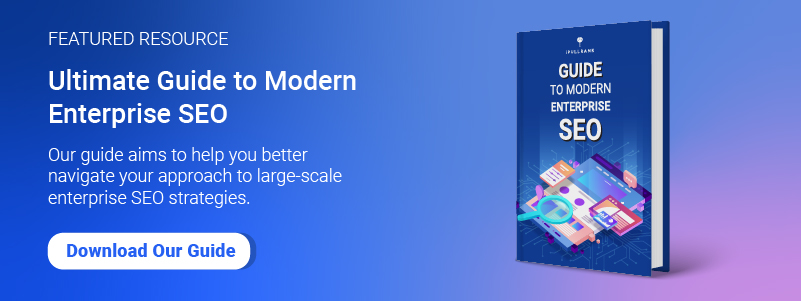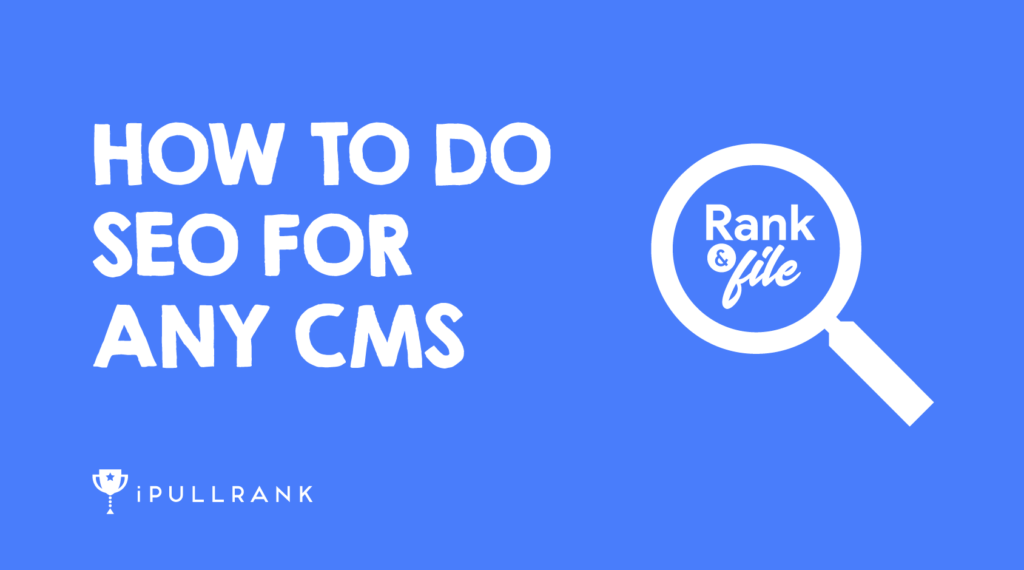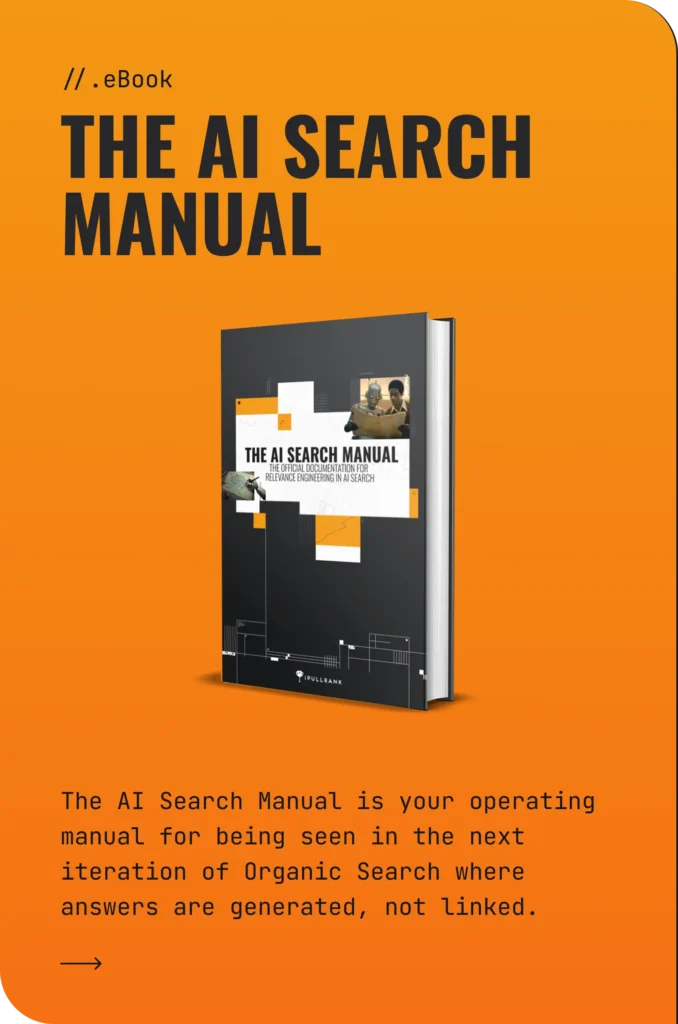When entering into a new engagement, it’s a good idea to understand what technology your client is using. At iPullRank, we have deep experience in a vast array of Content Management Systems (CMS) and have done a lot of effective work on everything from very closed enterprise and .NET CMSes all the way down to WordPress and other open-source environments.
There’s nothing worse than delivering a series of recommendations that cannot be actioned because of environmental limitations. Nevertheless, we’re often asked how we might approach a given CMS.
In this episode of Rank and File, I walk through the questions that need to be asked and the things that you need to do as an SEO to get ramped up on a new CMS.
Video Transcription:
Intro
Greetings and salutations, folks, my name is Mike King and this is another edition of Rank and File. So what I want to talk about today is how do I do SEO for any CMS? It’s a common question that we get asked, you know, what is your approach to such and such CMS, and the approach is always the same.
Choosing the right CMS
So the first thing that we have to do is understand why you pick that CMS to begin with. So hopefully, you chose the right CMS for your use case and in a lot of cases that is what happens. You know, you choose something that is lesser-known because of the fact that it fits your business in some way. And so we want to understand what those reasons are and be in better alignment across whatever it is that we’re doing.
Investigate the SEO capabilities of CMS
And then, we want to investigate the SEO capabilities of that CMS. In other words, read the documentation. Every CMS has, you know, very lengthy documentation that talks about how it works, why it works, and so on. And more often than not, they have some very specific SEO considerations. So you want to understand how they handle metadata. You want to make sure that you have the capability to edit page titles and meta descriptions and structured data and all types of, you know, other metadata.
It’s not just the page titles and meta descriptions, it can be tagging. It can be whatever other metadata that’s relevant to your content situation.
So this isn’t just an SEO thing.
It also has to do with your content strategy. You want to make sure that it allows you to do 301 redirects. So you know, there is always going to be a use case for changing where a piece of content lives. And so the CMS has to have that capability.
And then internal links. You need to have the capability to add internal links between pages. And so it’s a funny thing to mention because you know, you would imagine just because you can edit a page, you have the capability to do so. But in some cases, CMS don’t allow you to add HTML. They are only WYSIWYG environments. Not sure why that exists or why that’s a thing. But you need to know that the CMS has the capability.
And then you want to make sure that the CMS has capabilities where you can make site-wide changes, whether that’s on the template level or you know, just by pushing something across the site. And so you want to get a sense of what the plugins are for the CMS.
So a lot of CMS, whether it’s like an eCommerce CMS like Shopify and Magento or if it’s a more known CMS like WordPress, they have plug-in environments where you know people are contributing new functionality that you can just plug and play into your CMS.
A lot of the lesser-known CMS have had this as well. So you want to know what’s available, getting into it. And then, you want to make sure that you can do head insert. So the head tag within a page, you want to make sure that you can insert new code there. So we’re talking about, you know, structured data, JSON-LD, we want to be able to insert that. Or if there are canonical tags that it doesn’t have by design, you want to have the capability to add those.
But again, going back to this idea of template level changes, the CMS should have a series of functions wherein you can insert something like that on the code level because, at the end of the day, the CMS is, you know, what is powering the site, but you still have to build your design on top of whatever template engine that it has.
And then you want to see if they have the capability of allowing you to manage HTTP headers. Now, this is far less common in the CMS world, at least in my experience, but in some cases, they do allow you to do that. So you can have different things fire back based on like user agent or what have you. You need to know what those capabilities are. So that’s the first step as an SEO to understand how can you actually do SEO for any given CMS.
Build site effectively
And then you want to make sure that the site is built effectively. So again, some of these CMS can be what’s called headless wherein you know, the CMS doesn’t really have much of a prebuilt interface. And so it’s firing to your front-end code in such a way that you can build the site however you want and ingest the data from that CMS in any way that you want.
So with that is basically saying is you have, you know, complete latitude to build a site in any way that you want. And so you may use something like react or some other front-end framework, but you want to make sure that you’re still using a server-side rendering such that a search engine can actually index that content. And then also following the critical rendering path. So making sure that the site is built from a page speed perspective to be effective and, you know, loading as fast as possible.
Conclusion
So how do you do SEO for a CMS? The same way you do SEO for anything else. You know, understanding how that CMS operates is the first step, and digging into that documentation is the best way to do it. It really doesn’t require much domain knowledge. It requires you to have SEO knowledge and then see how that CMS operates in that environment. So I hope that helps. And I’ll see you tomorrow.

Now, over to you, what are your approaches to understanding what can be done for SEO within a given CMS?







